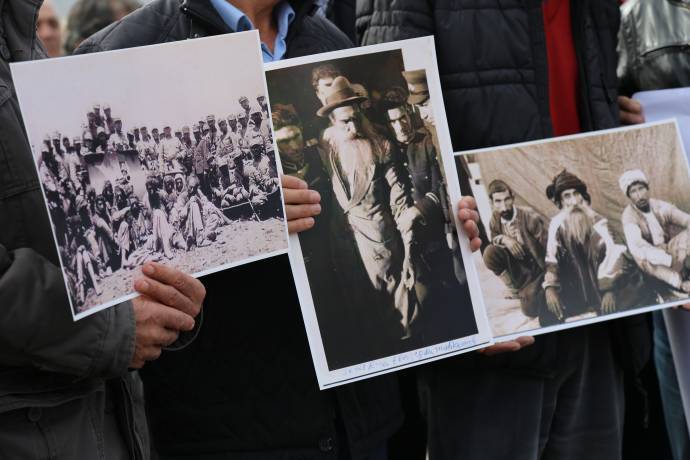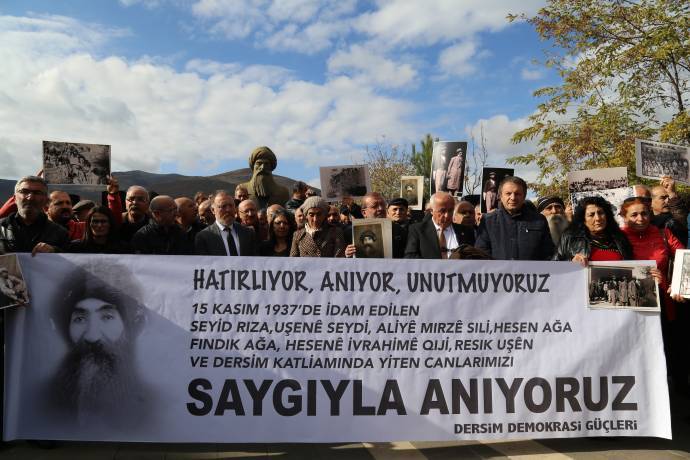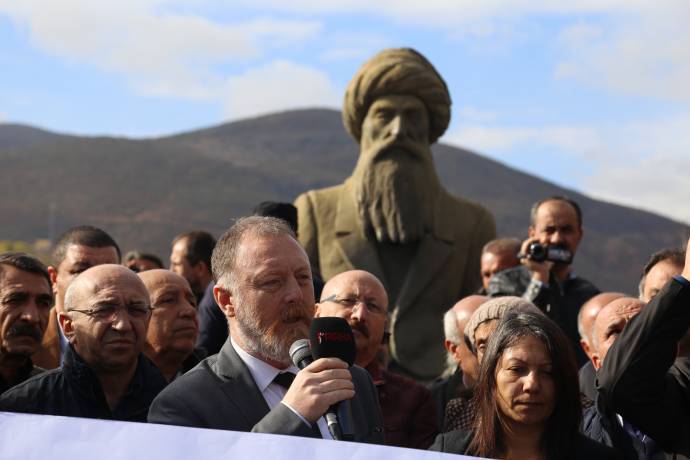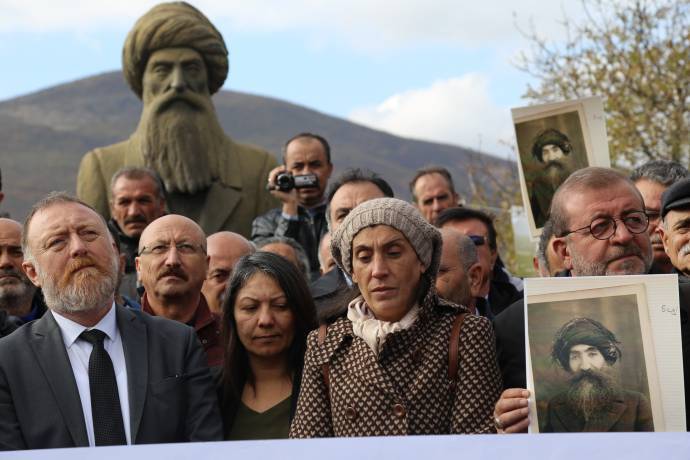Seyit Rıza and companions remembered in Dersim
"Until the Dersim massacre is really dealt with, the demands accepted, peace and calm will not come to these lands", said Temelli.
"Until the Dersim massacre is really dealt with, the demands accepted, peace and calm will not come to these lands", said Temelli.
The execution of Seyit Rıza and his companions was marked on its 81st anniversary at Seyit Rıza Square in Dersim.
The commemoration organized by Dersim Democracy Forces, was attended by HDP Co-Chair Sezai Temelli and party deputies Alican Önlü, Dilşat Canbaz, Zeynel Özen, Ali Kenanoğlu and Kemal Bülbül, as well as Pir Sultan Abdal Culture Association (PSAKD) President Gani Kaplan, Democratic Alevis Association (DAD) Co-Chairs Selda Güneş and Musa Kulu.

The joint statement was read by DAD Co-Chair Selda Güneş. "To this day, our wound continues to bleed. The persecution of those who are against the monistic mentality before and after the republic is being carried on by tyrants".
Güneş reminded the tragedy and magnitude of the genocide lived in Dersim and asked the State to deal with it. "Children, especially girls, were separated from their families and were given to various families, especially of officers, as spoils of war. In addition to the massacre of women and children who took refuge in the caves with poisonous gases, innocent people were gathered from their villages and stranded or thrown off the cliffs".

DEMANDS
Güneş re-reiterated the association’s demands: "Open the archives, let Dersim have its own name, Dersim [now is called Tunceli, in Turkish]; recognise the Dersim genocide; disclose the list of exiled, disappeared and adopted children. Seyit Riza and his companions' burial places should be disclosed. Stop the persecution of our geography, our languages and our Alevi faith".
HDP co-chair Sezai Temelli began his remarks by commemorating those who died.
"Until the Dersim massacre is really dealt with, the demands accepted, peace and calm will not come to these lands", said Temelli.

"We came to meet again with this pain. At the same time, we came to take strength from those who did not bow. Dersim is a rebellion against oppression, violence and genocide. When we look to the past and present, we see that the persecution in Dersim never ended".
Temelli added that the same mentality is in power today. "We are experiencing Dersim time and time again. The same cruelty, violence, and war mentality. Today, Dersim mountains are bombed, forests are burned. The same persecution continues".
